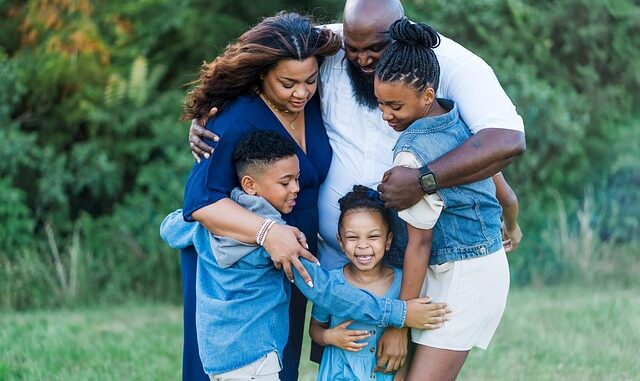
Summary
This article offers a comprehensive guide for families navigating the challenges of addiction recovery. It outlines ten actionable steps, from recognizing the signs of addiction to fostering a supportive home environment. By understanding addiction and implementing these strategies, families can play a vital role in their loved one’s journey to lasting recovery.
** Main Story**
Addiction? It’s a monster, isn’t it? It doesn’t just grab hold of the individual struggling; it throws a dark shadow over the entire family. The good news is, recovery is possible. But it’s not a solo mission; it’s a team effort. So, let’s dive into ten things you can do to support a loved one on their path to sobriety.
1. Spotting the Red Flags: Why Early Detection Matters
Sometimes, addiction creeps in like a thief in the night. One minute everything seems normal, the next, there are unexplained changes. Keep an eye out for shifts in behavior. I’m talking increased isolation, suddenly blowing off responsibilities, money problems that weren’t there before, and mood swings wilder than the weather. And, yeah, physical stuff too – weight changes, bloodshot eyes, slurred speech, the works. Trust your gut, because early intervention? It’s a total game-changer when it comes to successful recovery.
2. Knowledge is Power: Understanding Addiction
This is a big one: you’ve got to educate yourself. It’s not a moral failing, it’s a complex disease. Understanding how addiction rewires the brain, how it messes with the body, helps you approach the whole thing with a boatload more empathy. Armed with this knowledge, you’re in a better position to make smart decisions and really be there for your loved one. I mean, you can’t help someone navigate a maze if you don’t know what the maze looks like, right?
3. Draw the Line: Setting Healthy Boundaries
This one is tough, no doubt. It’s about protecting yourself while still offering support. Think about it: refusing to cover for them when they mess up, setting firm limits on financial help, not enabling their behaviors. These boundaries aren’t about being mean; they’re about creating a safe, healthy space for everyone involved. Believe me, it’s necessary, even if it feels harsh. I learned this the hard way with a family member years ago. I was so scared of hurting them I just kept covering up their mistakes, and it just enabled them to keep going. Looking back I wish I’d been stricter, because then maybe they’d have gotten help sooner.
4. Open Lines: Communication is Key
Think of it as building a bridge, one conversation at a time. Create a safe space, a judgment-free zone where honest talks can happen. Share your worries, sure, but more importantly, listen, really listen, to what they’re going through. Good communication? It’s the bedrock of trust, and it’ll strengthen the bond between you. And don’t interrupt, even if you feel like you know where they are going with a conversation. I have found that sometimes just listening without interrupting can be hugely beneficial.
5. Call in the Experts: Encouraging Professional Help
This is where things can get tricky. You can lead a horse to water, but you can’t make it drink, you know? All you can do is encourage them to seek professional help, a proper assessment, the right treatment. Do your research, find reputable centers, therapists who specialize in addiction. Offer to help with scheduling, offer to go with them to appointments. It shows you’re in their corner, no matter what. I know it’s a cliche, but it can make a big difference to have someone there.
6. Treatment Options: Finding the Perfect Fit
There’s a whole spectrum of treatment out there. From inpatient and outpatient programs, to different types of therapy, support groups, even medication-assisted treatment. The key is to find what resonates with your loved one’s individual needs. What works for one person might not work for another, so keep that in mind.
7. Home Sweet (Sober) Home: Creating a Supportive Environment
Time to declutter – not just the physical space, but the emotional one too. Remove any triggers, anything that might tempt them back. If alcohol’s a problem, ditch it. Avoid social gatherings where substance use is rampant. Establish routines that promote well-being. Think of it as setting the stage for success, making their journey just a little bit easier.
8. Family Therapy: Healing Together
Addiction doesn’t just impact the individual; it impacts the family unit. Family therapy offers a structured platform to work through relational dynamics affected by addiction, helping everyone develop healthier ways to cope. It’s about understanding each other better and rebuilding those family bonds. Look, I know its not always easy to get every one involved, but even having some family members attend therapy, is better than no one going.
9. Find Your Tribe: Joining Support Groups
There’s immense power in knowing you’re not alone. Groups like Al-Anon or Nar-Anon can be a lifeline, connecting you with others who understand what you’re going through. They offer support, coping strategies, and a sense of community when you feel like you’re drowning. It is good to remember, when you are struggling, that there are other people going through exactly the same thing, and talking to them, and sharing stories, can be really valuable.
10. Keep the Faith: Celebrating Milestones
Recovery isn’t a sprint; it’s a marathon, there will be good days and bad days. Celebrate the wins, no matter how small they seem. Offer encouragement during the setbacks. Remind your loved one of their strength, their resilience, that they can get through this. Because, honestly, hope and positive reinforcement? They’re vital for long-term success.
Ultimately, supporting a loved one through addiction recovery is a marathon, not a sprint. Be prepared for ups and downs, but remember, your consistent support, understanding, and unwavering hope can make all the difference. Good luck – you’ve got this!


Be the first to comment